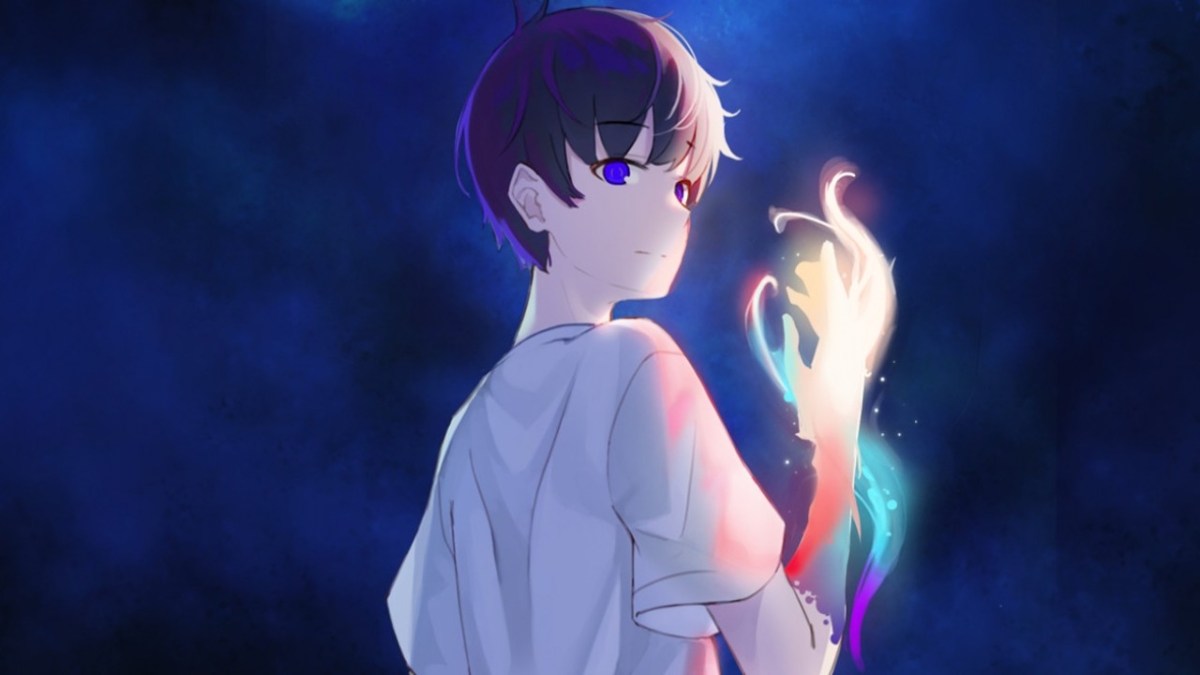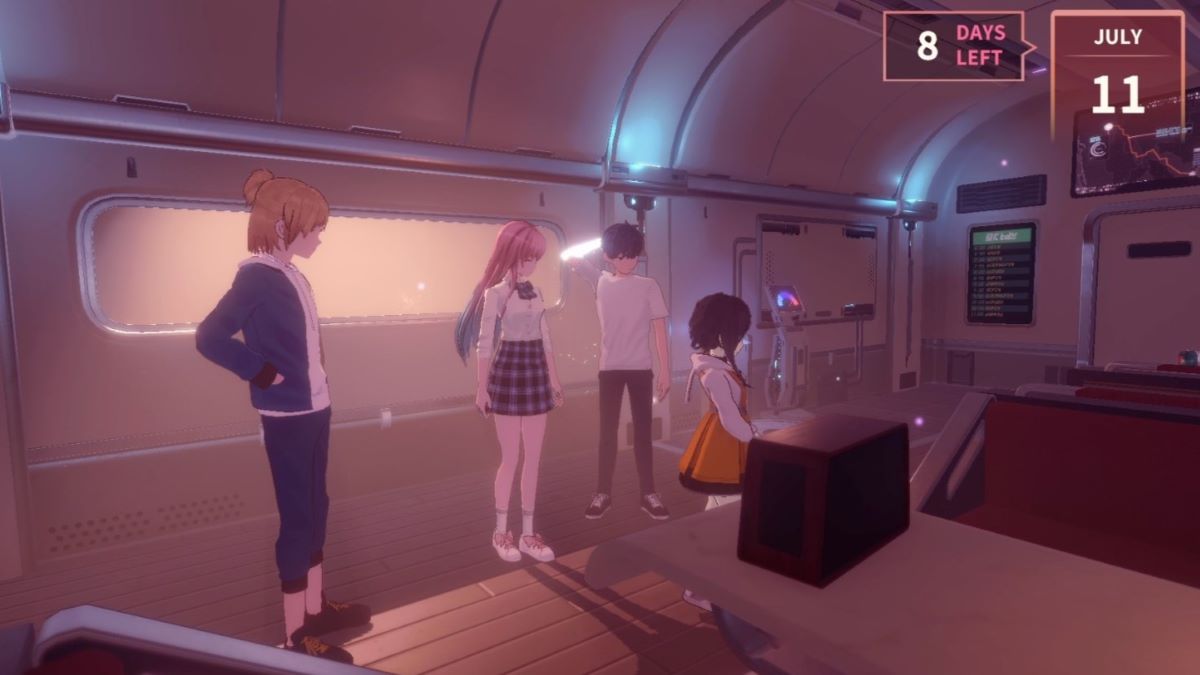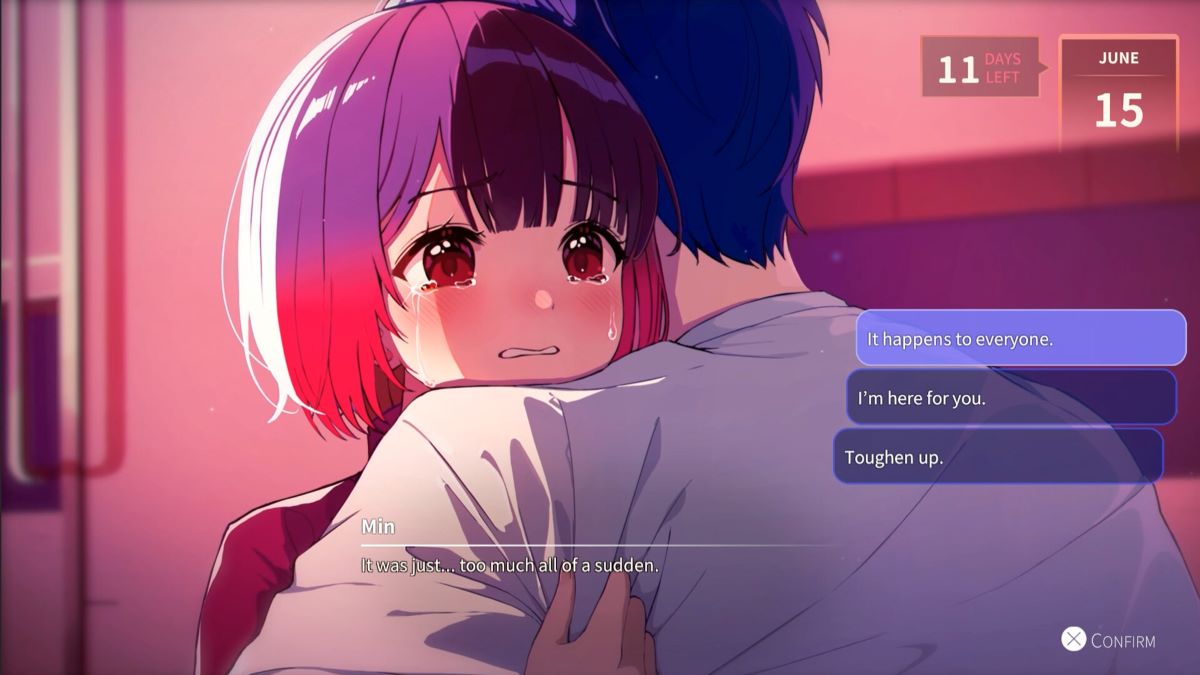2023 has seen the new-generation drought finally break. The past few months have delivered a steady stream of Game of the Year—and arguably even Game of the Generation—contenders: Starfield, Baldur’s Gate 3, The Legend of Zelda: Tears of the Kingdom, Diablo IV, and more besides. This glut follows interminable delays since the PlayStation 5 and Xbox Series X | S launched at the height of the Covid lockdowns and feels, finally, like the passing through of that period. While all that has been happening on the business side, I’ve been wondering when the influence of the pandemic would be felt on the creative side, and I think Eternights might be the beginning.
There’s a temptation to point to last year’s Thymesia, with its premise of a plague-driven soulslike, as a pandemic game, but I think that misses the mark. While Thymesia certainly borrows the aesthetics of masks and illness and barren streets, that’s all it is: an aesthetic. Beyond the setting, it doesn’t feel all that different from most others in its genre. And that’s the difference that Eternights offers. It taps into the themes and emotions of the pandemic. Maybe that will be a turn-off for some people because it’s still too raw or they just want to forget, but documenting the humanity within that history is important, and the sci-fi-infused urban fantasy spin that Eternights presents is fascinating.
While Jae Hyun Yoo of Studio Sai began creating the game in 2019 as “a project that mixes Apocalypse, Romance and RealtimeAction,” it wasn’t until June 2020 that he entered full time development, and the fingerprints of that latter period are all over it. By that time, mass business closures and lockdowns had gone into effect, and many of us had at least begun to experience the enforced confinement that characterized the first wave of the pandemic. It was entirely unlike most fictional viral (usually zombie) apocalypses, where the path to survival is to keep moving and hope to stumble upon a sanctuary. Yet the ‘boring apocalypse’ finds an outlet in Eternights.
In the beginning, it’s just ‘you’ and your best friend Chani, locked in an evacuation shelter. Chafed by the inactivity and curious about noises coming from elsewhere in the facility, you set out. However, the newfound liberty doesn’t last long and, after meeting with pop star Yuna and her sheltermate Lina, you’re confined again, this time to a train. There, you begin to fall into routines and, just like during the darkest days of Covid, you’re severely limited in the reasons for which you’re allowed to leave: story missions and scavenging for necessities. The rest of the time, you train your skills, hang out with the slowly growing cast of survivors, and deepen your bonds.
That obsession with bonds and human connection is another theme from the pandemic. What was initially called social distancing in the beginning later became characterized as physical distancing. The shift in language reflected a concerted shift in perception because ‘social’ means much more than just in-person interactions. And as time wore on, those pushes to keep in touch and ensure the health of our social networks became more strident as a means of bolstering our collective mental health. Eternights gamifies that same sentiment, and connecting with the other characters strengthens the combat effectiveness of the entire group. To some degree, that gamification undercuts the game’s dialog with the pandemic in that, for most of us, the best way we could work to end it was to do nothing — though that didn’t stop protests against enforcement measures from emerging in the latter phases.
However, both real-world inactivity and in-game activity serve the same purpose: to bring about a return to normality. Many people wanted to return to in-person work, to mask-free shopping, to coffee dates — to normality. Amid the fear and uncertainty of a virus about which we knew nothing and rules about what we could and couldn’t do that changed rapidly, often daily and with very little warning, we longed for the familiar. That feeling, too, gets a parallel in Eternights, though it’s less because of the apocalypse than because of Yuna’s status as a pop star. She longs for a normal life, finding comfort in the simple pleasures of visiting schools and ironing clothes. And she’s not alone. Most of the characters pine after days long gone and friends lost amidst the chaos.
And that, I think, is where the connection to the pandemic is most keenly felt. Between the lockdowns, the months-long paralysis of uncertainty, the millions of deaths, and the horrifying images of overwhelmed hospitals and makeshift morgues that were beamed into our living rooms and onto our phone screens, we went through a collective trauma. I won’t reiterate what my colleague Elise Avery has already written on this subject, except to add that it feels like the balance of comedy and tragedy in Eternights is more than just a way to make the heavy themes of the narrative more palatable; it’s a reflection of reality. When I think back to the pandemic, the grimness sticks out, but so too does the collective retreat into lightheartedness to deal with it all. The internet embraced memes in various forms as much as ever, and pop songs were co-opted into messages about wearing masks and washing hands. The jokes that abound in Eternights don’t undercut the characters’ trauma so much as express their efforts to deal with it in whatever way they can, as was so common for so many people.
I’ve already come across several books, short stories, and movies that incorporate or otherwise take inspiration from the pandemic. Some use it as a plot point, others talk around it or fictionalize it, but all of them speak to the feelings and themes it embedded in our social fabric. Those variations are endlessly fascinating. I’m intrigued by how much Eternights reflects that period, and I can’t wait to see more developers and teams process the pandemic and put their own spins on it. I highly doubt we’re about to see a massive flood of games about Covid — not least because any AAA games grappling with it are likely still years from release — but I do hope to see more of them.








Published: Sep 30, 2023 05:00 pm